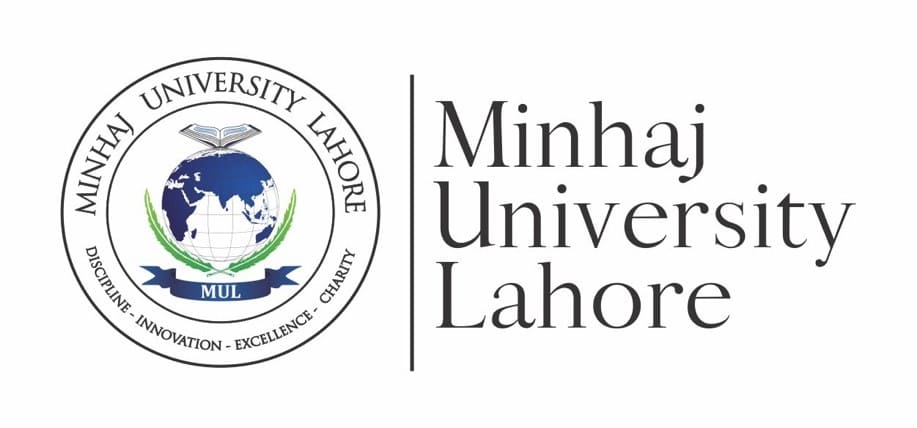Competency of Shariah Auditors in Islamic Banking Institutions: Challenges and Pragmatic Solution
DOI:
https://doi.org/10.58932/MULD0015Keywords:
Islamic banking, Shariah governance, Shariah compliance, Shariah audit, International Shariah audit, External Shariah auditAbstract
Islamic banking is a Shariah-compliant alternative to the conventional banking system. All operations, products, and businesses adhere to Shariah guidelines in Islamic banking. The responsibility of Shariah auditors is to ensure that all the operations of the Islamic bank align with Shariah rules and principles. The job of Shariah auditors is very sensitive compared to any other audit because the findings of Shariah auditors serve as the basis for the Shariah board to form an opinion about the Shariah compliance environment of Islamic banks. The study will focus on the challenges of the competence of Shariah auditors in the Islamic finance industry and will draw conclusions using qualitative and quantitative methods. The paper will be divided into two parts: in the first part, researchers will collect data using survey methods and analyze it; in the second part of the study, interviews with experts will be included. The paper will be helpful for practitioners, policymakers, and specifically for the State Bank of Pakistan to enhance the Shariah compliance environment in the Islamic Finance Industry.
References
Ali, N. A. M., & Kasim, N. (2019). Talent management for Shariah auditors: case study evidence from the practitioners. International Journal of Financial Research, 10(3), 252-266.
Al-Mawardi. (450 AH). Al-Ahkam al-Sultaniya wa al-Wilaya al-Diniyya (The Laws of Islamic Governance). (A. Yate, Trans.). Ta-Ha Publishers Limited.
Asic, A., Kurtovic-Kozaric, A., Besic, L., Mehinovic, L., Hasic, A., Kozaric, M., ... & Marjanovic, D. (2017). Chemical toxicity and radioactivity of depleted uranium: the evidence from in vivo and in vitro studies. Environmental research, 156, 665-673.
Beck, P. J., & Wu, M. G. (2006). Learning by doing and audit quality. Contemporary accounting research, 23(1), 1-30.
Bonner, S. E., & Lewis, B. L. (1990). Determinants of auditor expertise. Journal of accounting research, 28, 1-20.
Boyatzis, R. E. (1991). The competent manager: A model for effective performance. John Wiley & Sons.
Chen, S., & Feffer, J. (2009). China's military spending: soft rise or hard threat?. Asian Perspective, 47-67.
Christensen, B. E., Glover, S. M., Omer, T. C., & Shelley, M. K. (2016). Understanding audit quality: Insights from audit professionals and investors. Contemporary Accounting Research, 33(4), 1648-1684.
Creswell, J. W. (2007). QUALITATIVE INQUIRY& RESEARCH DESIGN.
Dass, P., & Parker, B. (1999). Strategies for managing human resource diversity: From resistance to learning. Academy of Management Perspectives, 13(2), 68-80.
DeAngelo, L. E. (1981). Auditor size and audit quality. Journal of accounting and economics, 3(3), 183-199.
Favere-Marchesi, M., & Emby, C. (2018). The alumni effect and professional skepticism: An experimental investigation. Accounting Horizons, 32(1), 53-63.
Franz, D. R., Crawford, D., & Johnson, E. N. (1998). The impact of litigation against an audit firm on the market value of nonlitigating clients. Journal of Accounting, Auditing & Finance, 13(2), 117-134.
Frederick, D. M., & Libby, R. (1986). Expertise and auditors' judgments of conjunctive events. Journal of Accounting Research, 270-290.
Hammersley, J. S. (2006). Pattern identification and industry‐specialist auditors. The Accounting Review, 81(2), 309-336.
Haridan, N. M., Hassan, A. F., & Karbhari, Y. (2018). Governance, religious assurance and Islamic banks: Do Shariah boards effectively serve?. Journal of Management and Governance, 22, 1015-1043.
Hawke, A., & Heffernan, T. (2006). Interpersonal liking in lender‐customer relationships in the Australian banking sector. International Journal of Bank Marketing, 24(3), 140-157.
Hayes, R. M., & Schaefer, S. (2000). Implicit contracts and the explanatory power of top executive compensation for future performance. The RAND Journal of Economics, 273-293.
Hoffmann, T. (1999). The meanings of competency. Journal of european industrial training, 23(6), 275-286.
Holt, T. P., & DeZoort, T. (2009). The effects of internal audit report disclosure on investor confidence and investment decisions. International Journal of Auditing, 13(1), 61-77.
IAASB. (2014). CHAMPIONING CHANGE IN THE PUBLIC INTEREST.
Ianniello, G., & Galloppo, G. (2015). Stock market reaction to auditor opinions–Italian evidence. Managerial Auditing Journal, 30(6/7), 610-632.
IIFIA, (2016). The International Forum of Independent Audit Regulators.
Khan, M. A. (1985). Role of the Auditor in an Islamic Economy. Journal of King Abdulaziz University: Islamic Economics, 3(1).
Lucia, A. D., & Lepsinger, R. (1999). Competency Models: Pinpointing critical success factors in organizations. San Francisco: lossey-Bass/Pfeffer.
Mahzan, N., & Yahya, Y. (2014, March). Syariah audit practices in Malaysian Islamic financial institutions (IFIs). In National Symposium and Exhibition on Business and Accounting 2014 (NSEBA) 19 March 2014 (pp. 1-9).
Malaysia, B. N. (2010). Shariah governance framework for Islamic financial institutions. Bank Negara Malaysia, Kuala Lumpur.
Markus, L., Thomas, H. C., & Allpress, K. (2005). Confounded by competencies? An evaluation of the evolution and use of competency models. New Zealand journal of psychology, 34(2), 117.
Merriam, S. B., & Tisdell, E. (2009). Qualitative research: A guide to design and implementation. san francisco, ca: Lohn wiley & sons.
Mirabile, R. J. (1997). Everything you wanted to know about competency modeling. Training & development, 51(8), 73-78.
Peecher, M. E., & Piercey, M. D. (2008). Judging audit quality in light of adverse outcomes: Evidence of outcome bias and reverse outcome bias. Contemporary accounting research, 25(1), 243-274.
Rahman, A. R. A. (2007). Islamic banking and finance: between ideals and realities. International Journal of Economics, Management and Accounting, 15(2).
Rose‐Green, E., Huang, H. W., & Lee, C. C. (2011). The association between auditor industry specialization and firms' disclosure of internal control weaknesses. International Journal of Auditing, 15(2), 204-216.
Sarwoko, I., & Agoes, S. (2014). An empirical analysis of auditor's industry specialization, auditor's independence and audit procedures on audit quality: evidence from indonesia. Procedia-Social and Behavioral Sciences, 164, 271-281.
Shaharuddin, A. (2011). Shariah Governance of Malaysian Islamic Banking Institutions. Jurnal Ekonom, 14(2), 53-57.
State Bank of Pakistan. (2008). Guidelines for Sharī’ah Compliance in Islamic Banking Institutions. Islamic Banking Department, State Bank of Pakistan.
State Bank of Pakistan. (2014). Sharī’ah Governance Framework for Islamic Banking Institutions. Islamic Banking Department, State Bank of Pakistan.
Sun, J., & Liu, G. (2011). Client‐specific litigation risk and audit quality differentiation. Managerial Auditing Journal, 26(4), 300-316.
Sutton, A., & Watson, S. (2013). Can competencies at selection predict performance and development needs?. Journal of Management Development, 32(9), 1023-1035.
Syariah, F. D. Accounting and Auditing Organization for Islamic Financial Institutions (AAOIFI) Standar Syariah No. 9 Tahun 2003. Pasal, 4(1), 7.
Downloads
Published
How to Cite
Issue
Section
License
Copyright (c) 2023 ESHAA SHAFIQUE, DUR-E-AYMEN, MUHAMMAD ASGHAR SHAHZAD

This work is licensed under a Creative Commons Attribution-NonCommercial 4.0 International License.









